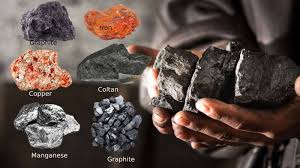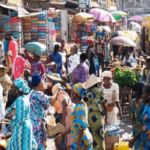African countries can make the most of food transformation by adding value, turning it into products that can be exported at a better price and/or using it to meet Africa’s own needs, including developing clean and affordable energy.
New research from PWYP suggests Africa could increase GDP by at least $24 billion and create 2.3 million jobs a year through food reform.
African leaders must come together quickly to ensure economic reforms are effective, transparent, fair and equitable.
Most of Africa’s food production is directed to be produced outside the continent. Only 2% of the country’s electricity is exported to other African countries. Africa is currently at the bottom of the energy conversion value chain, with most of the profits coming from the rest of the world.
- Advertisement -
While some countries in Africa have changed the process to some extent, the country is still almost entirely off the slopes, and much of it is rich in gems such as design, production, marketing and sales. This is a big problem on the continent, but African governments have the power to change the game.
Much of the metals and minerals that will enable the world’s transition away from fossil fuel will come from Africa and other developing countries, meaning African governments will be able to make demands that are important for the health of their citizens, as well as the health of their economies and their environment.
The Democratic Republic of Congo, South Africa, Sudan, Zambia and the Republic of Congo correctly account for 90% of the countries exporting more of the process and transformation. Madagascar, Egypt, Namibia, Morocco and Mozambique also have the opportunity to increase exports by hundreds of millions of dollars each year.
African Countries need to decide how to improve their participation in the source. Instead of seeing competition as necessary, they should focus on focusing on the most competitive part of the chain, even if that means exporting food from other countries. The country’s value can be saved with a simple cooperation strategy of African countries.
With this approach, Africa can also use its transformative food to create new technologies that promote equal access to energy on the continent. Regional economic cooperation and competition in the energy market.
- Advertisement -
The countries have abundant reserves of minerals such as cobalt, lithium and nickel, which help generate, transport, store and use electricity generated from clean energy sources such as wind and solar, and are essential to a clean energy future.
Tanzania, for example, has large deposits of nickel, a key component of lithium-ion batteries that power everything from cell phones to electric cars.
While the world scrambles to obtain these treasures, Africans are left to lean on the past.
The money from this food should support development in Africa, providing our citizens with roads, hospitals, schools, electricity and other much-needed services.
The American Security Organization, which includes the European Union and other powerful countries in the OECD, is positioning itself against the richest countries in Africa.
At the same time, it is said that the EU will rebuild its relations with Africa and other rich countries through “collaborative cooperation”.
All these initiatives aim to “deliver economic benefits to local communities” and ensure that participating organizations “move towards economic benefit”, as well as benefiting the country in different ways for the joint promotion of resources
It is well known that mineral exports are controlled by international trade policies created, influenced and controlled by Western powers and that these policies allow them to obtain African resources at a good price.
African civil society is working across borders to ensure that agreements signed between African government and regional government reflect the unity of the countries. But we cannot do this alone. We need to unite our leaders around a vision for our minerals. Only then can we the African continent benefit and open a new chapter in its history of exploitation and underdevelopment.










